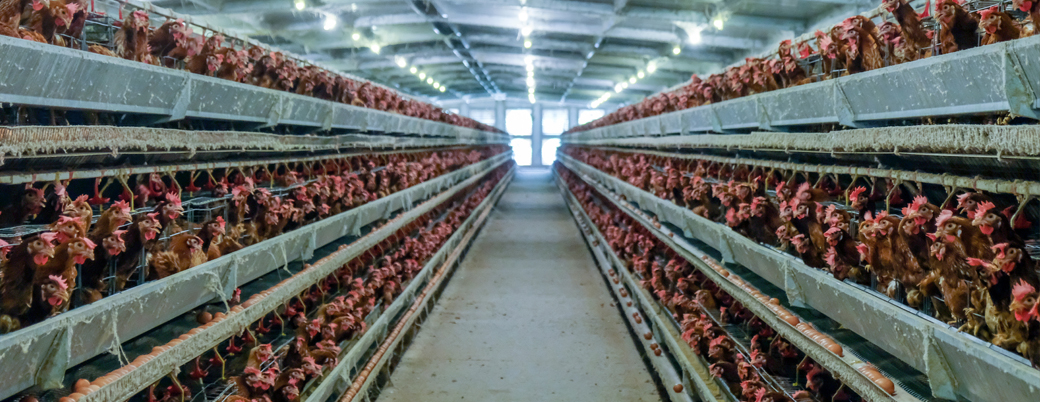
Pollution, poor working conditions, cutthroat practices, and a vicious contract system put people—farmers, farm workers and regular citizens alike—in danger.

In polling, 94% of Americans agree that animals raised for food deserve to live free from abuse and cruelty. Yet the majority of the nearly 10 billion land-based animals, plus countless more aquatic animals, farmed for food each year in the U.S. are suffering on factory farms.
“Factory farm” is a term commonly used to describe an industrial facility that raises large numbers of farm animals such as pigs, chickens or cows in intensive confinement where their movements are extremely inhibited. Animals are kept in cages or crates, or are crowded together in pens. These types of farms are sometimes referred to as concentrated or confined animal feeding operations (CAFOs).
It doesn’t have to be this way. By advocating for more humane farming methods and scaling back industrial animal agriculture, the ASPCA and supporters are ending countless animals’ suffering, reducing the climate impacts of animal agriculture, and improving public health